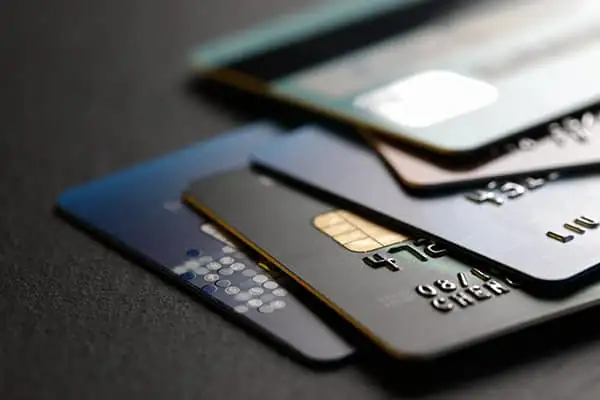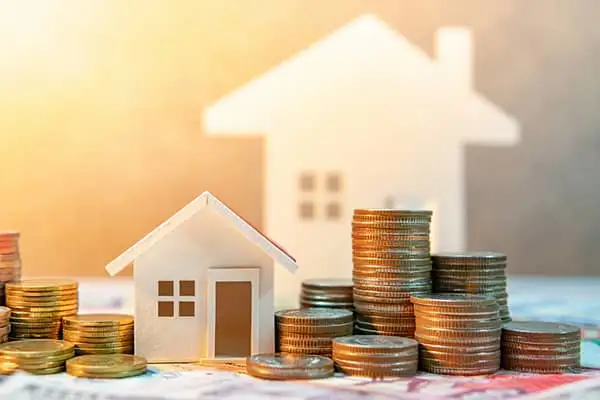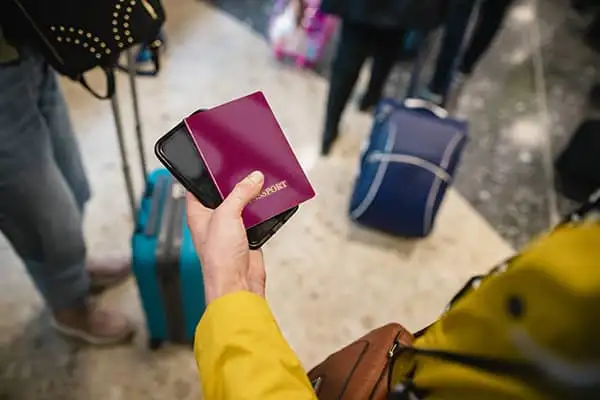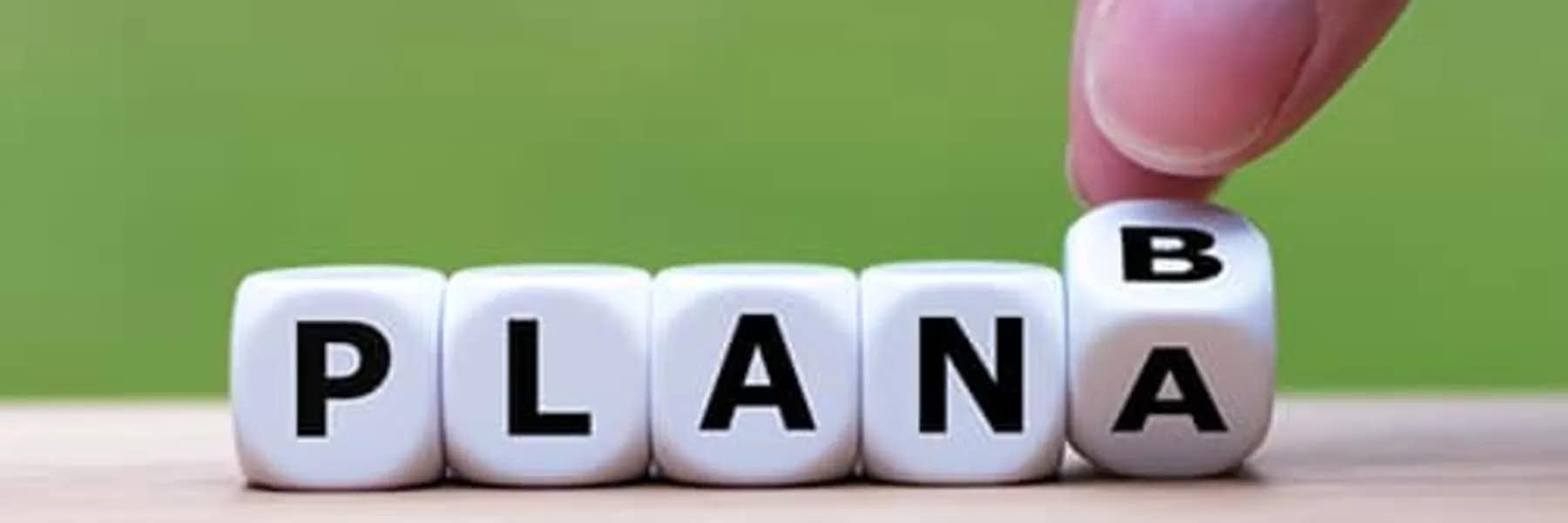Americans—perhaps you among them—are increasingly asking the question: “How do I protect myself and my family in this current environment?”
I’m not talking about hand-washing or social distancing at a local restaurant. I’m talking about “structural” ways to begin building a moat of sorts around yourself and your family—so that you can protect what’s most important to you. We all want to be that person who, while everybody else is losing their head, feels confident that we’re just fine.
And that is what this month’s cover story is about: Plan B, the notion that we all need a backup plan that we can call on in case a “what if” scenario manifests as reality.
Dismissing this need for a Plan B is easy because the reasons for its existence so rarely come into play. But they do come into play. Black swans (unexpected events with severe consequences) land all the time to change the world around us. And it’s in those moments that a well-built Plan B reveals its true value.
It’s also important to note that a Plan B isn’t just for those with money who can build fortified compounds and rent private jets to whisk them away from trouble. It’s a realistic option for everyone. Depending on your desires, it doesn’t have to cost a fortune. Yet, properly built, it could save you a ton of money and give you greater peace of mind.
At its core, creating a Plan B is a five-part process that can help protect you and your family from various types of crises that could emerge, ranging from financial to political to social. You don’t have to implement each step because no one-size-fits-all plan exists. Each is its own customized solution particular to your life, so pick and choose from this checklist the factors most relevant to your situation.
So, let’s set about the process of building a Plan B…
Fund Your Life: Money and Banking

In a crisis, the first concern is almost always access to money.
But if the cause of the crisis is the money in which your life is 100% denominated, then the angst you feel could prove more intense and stressful than you imagine.
And what might cause this need?
Frankly, any number of potential crises swirl around the dollar today. A debt crisis in the government could force the U.S. to default on payments or restructure its borrowings, which could see the greenback lose “reserve currency” status globally. That would have devastating impacts on personal finances. Or, the Federal Reserve loses control of its untested interest rate policies and money printing, leading to hyperinflation not unlike Venezuela. China, in a financial war with the U.S., could dump all the Treasury paper it owns, forcing U.S. interest rates sharply higher.
I’m not predicting any of those will happen. I’m playing devil’s advocate to make a point that black swans and gray rhinos (predictable, probable events) exist all over the place, and no one can definitively say they will or won’t emerge. The best we can hope to do is adhere to the Boy Scout motto: Be Prepared.
Consider the impact from just one of those events: the U.S. dollar loses reserve currency status. Because every commodity in the world is priced in dollars, the greenback losing its privileged status means that overnight the cost of living will sharply escalate since we import so much of what we consume—from food to electronics to clothes to commodities that go into uncountable numbers of products. Prices for those imported goods will rise simply because the dollar is declining relative to the currencies in which those goods are produced. If the rise is sharp enough, your spending power and, thus, your lifestyle, declines, possibly severely.
For that reason, owning non-dollar currencies, and having some of that money offshore can be a lifesaver.
The challenge here is that every currency in the world is fiat—they’re all backed by air and a mass belief that a particular currency is worth something because a government says so. Maybe that faith is well-placed, ultimately… maybe not. But I do know that history shows time and again that a country that builds up an excess of debt will always see its currency suffer or even collapse.
At the moment, the U.S. has more than $26 trillion in federal debt, that exceeds 132% of our current gross domestic product, more than double what’s widely considered healthy. Those numbers are likely to worsen as the economy continues to contract and demand for government stimulus (all funded by debt) increases in order to counter the effects of the pandemic. For that reason, I want exposure to what I consider safer currencies. Two fit the bill right now: the Swiss franc and the Norwegian krone, and to that end I’ve put 75% of my retirement account cash into the franc, with the remainder in the dollar. (My concern with the krone is that Norway is an oil economy, and in a global economic crisis, oil suffers… which hits the krone at some point.)
The easiest way to own the franc is through an exchange-traded fund (ETF) that invests only in Swiss francs. To be clear, I don’t look at this as an investment like, say, an ETF that owns stocks or bonds. This is purely a wealth-preservation tactic. Switzerland is a fiscally conservative nation, and the Swiss central bank manages the franc well. As such, the franc should hold its value relative to the dollar and will buy more dollars if the greenback runs into a crisis. Frankly this is something you can easily do right now from home, or whenever you feel ready, because you can purchase an ETF through any U.S. brokerage account.
As for banks, a Plan B is better built if you have an offshore bank you can tap into during a crisis. Depending on the nature of the crisis, countries have closed financial borders and limited access to cash. Look no further than Greece during the European debt crisis less than a decade ago, when the government forced banks to close and, for a period of time, limited withdrawals to about $65. In U.S. terms, President Franklin D. Roosevelt shuttered banks for a week in 1933 as the country struggled through one phase of the Great Depression.
If you can get yourself overseas in a crisis, you will have immediate access to cash through your offshore bank. Or, with a debit card tied to that account, you will be able to more easily access some of your money at home.
Opening an overseas bank account as an American is not as easy as it once was because of U.S. regulations that are onerous on foreign banks. Still, it’s possible in some places. Bank of Butterfield, a large, reputable bank in Bermuda, is one such place. It allows Americans to open an account online with as little as $100, though “know your customer” rules require you have a U.S. passport to prove your identity, and you’ll have to complete a U.S. tax document.
Butterfield offers accounts denominated in a limited selection of currencies, and of the ones it offers I’d choose the British pound. Not that the pound is a stellar currency—it has its own problems—but part of this exercise is reducing your dollar exposure. Moreover, the pound doesn’t face the same potential debt crisis that the dollar does and, thus, is likely to better maintain its value.
How much you put into an offshore bank and in foreign currencies depends on your comfort level. As I mentioned, I have 75% of my retirement cash in the franc, but you don’t have to mimic me. I would keep enough in an offshore bank to see you through at least a month or two of normal spending needs—more if you’re comfortable with it.
A Place to Live: Real Estate at Home or Abroad

Next on this checklist: living arrangements.
To the degree that you can afford it, a well-built Plan B takes into account real estate and a safe place to which you can retreat if the world around you goes pear-shaped. That retreat can be in the U.S., or it might be overseas, depending on your comfort level with the idea of moving and living abroad.
Crises, especially societal crises, have the predictable effect of fueling a desire to separate from the herd. I lived in New York during the 9/11 terrorist attacks, for instance, and in the aftermath I saw a number of friends, colleagues, and acquaintances buy cottages in upstate New York. They simply wanted a getaway where they felt safe.
The same is now happening in the wake of the pandemic. Urban dwellers are snapping up real estate away from metro areas and relocating, particularly those who can now work from home. A real estate investor I know in Southern California notes that rents are falling sharply in San Francisco even as property sales and prices are escalating in tiny Chico, a college town 2.5 hours to the north.
The capacity to work online these days makes the real estate component of a Plan B even more compelling. The ability to earn the same income yet live in a cheaper, non-urban location can mean substantial cost savings that can fund other aspects of a Plan B—or just elevate your lifestyle.
Where you might go in the U.S. is entirely dependent on your current location and your personal desires— lake, mountains, farm? Maybe you buy this property now with the idea that it’s a fun, family getaway…but one that becomes your primary bunker in a crisis.
Where you might go overseas relies similarly on desire but also must take into account where you can easily and quickly obtain a long-term residence visa or gain citizenship relatively quickly. By and large, countries like Portugal, Spain, France, Italy, Costa Rica, Panama, Uruguay, Mexico, and Canada tend to be popular among American buyers. All are relatively easy in terms of pursuing visas and, ultimately, citizenship, if that becomes a goal (more on that coming up).
A solid approach: Buy property in a place you like that has decent rental demand. That way the house, apartment, or condo you own will generate income while you’re not using it, lessening the financial burden of holding the property. And no matter the destination you choose, always use a local attorney to manage this process, since real estate laws can be Byzantine.
Earning Money: Online Income

Crises aren’t so considerate that they wait until we’re retired to occur. They happen throughout your life. And as we’ve seen with COVID-19, jobs can evaporate quickly. Which means that in the immediate aftermath of a crisis, or even as it’s unfolding, you might need a way to generate an income until you can find something permanent.
Certainly, this won’t apply to everyone, but there are those for whom a job is a relevant Plan B consideration. Moreover, this also dovetails to a degree with the real estate issue. If you do decide that living away from an urban area is a relevant solution in your life, the ability to earn an income online can make that transition possible.
To that end, building a profile on a freelance site in your specialty, and seeking freelance jobs through that site every so often, is a good way to build an online reputation and freelance experience that can help you earn an income in a pinch.
Determine what freelancers with your skills or talents are earning and how they’re marketing themselves, then mimic it. Maybe even undercut their prices just so you can win a few gigs. That will flesh out your ratings and reviews so that if you need to fall back on freelancing at some point, your profile will already show you have experience as a freelancer who can successfully meet client needs and deadlines.
Portable Wealth: Gold and Cryptocurrencies

This is in some ways similar to money and banking. But in other ways it’s entirely different.
As I mentioned, all currencies in the world today are fiat and have nothing but “faith in the system” to support their value. Yet throughout history, faith in one currency or another—or the monetary policy backing a currency— has collapsed for all manner of reasons, including the U.S. dollar as recently as the 1970s.
A Plan B, therefore, considers the possibility that an economic or monetary crisis might disrupt the currency status quo, not just for the dollar but for all major currencies.
What might that crisis look like? Well, given the vast sums of debt that exist in the U.S., Europe, Japan, and China, it’s not hard to imagine a crisis that sees all currencies decline in value relative to the goods on which we live. Similarly, it’s not hard to imagine the U.S. pushes China so hard that China dumps its vast holdings of U.S. debt. Yes, that would hurt China financially, as critics of this “what if” scenario regularly reply in downplaying this possibility. But what if China is willing to absorb the short- to medium-term pain to secure long-term gains?
Again, I’m not predicting this. But I am saying that perceptions are not always reality, and expectations don’t always follow the anticipated path.
Dumping masses of U.S. debt would crush the bond market, shock the financial system, and push interest rates sharply higher by default (falling bond prices mathematically equate to rising yields on existing bonds, which means rising interest rates on all the new bonds government would have to sell).
At a more personal level, this chain of events would severely undermine the dollar. And our antidote is gold…and, increasingly, certain cryptocurrencies.
Relative to the cost of goods and services, gold has maintained its value remarkably well across the span of time. And that’s what’s important. What we ultimately care about is the ability to afford our life if inflation destroys the value of currencies in terms of what we can afford. The dollar won’t go to zero— currencies generally don’t do that. But a dollar (or a euro or a yen or a whatever) can fall dramatically relative to what we buy.
Therefore, owning some amount of gold is critical. Maybe 5% to 10% of your overall portfolio is enough. If gold surges as much as is possible, a relatively small amount will help replace the declining value of the dollar.
I gravitate toward physical gold because most ETFs (and especially the biggest ones) are not a claim on gold but, rather, a claim on paper. Owning gold offshore is not a bad idea, either. It reduces the risk of confiscation. The U.S. confiscated gold once, and while I’m not saying that will happen again, I’m not saying it won’t. So, I want to be prepared for the worst. You can buy and hold gold in vaults in Singapore through BullionStar.com, or in Zurich or Toronto through GoldBroker.com. Both are reputable.
Of course, gold isn’t easily portable or spendable. Cryptocurrency, however, is. And while it’s still a new asset class plagued by volatility concerns, parts of the crypto-sphere make a lot of sense in terms of portable wealth. In particular, I’m talking about what are known as “stablecoins.”
These are cryptocurrencies that shadow fiat currencies, meaning they tend to be stable relative to the currency they’re tracking. Take US Dollar Coin, for instance, built in 2018 to follow the dollar. It has fluctuated on either side of $1, typically between $0.99 and $1.01.
Because of that stability, stablecoins can serve as a convenient, private means of moving your wealth around electronically without worrying about the value of your account potentially shrinking. Moreover, they’re an opportunity to move some of your money outside the dollar, since the list of fiat currencies with stablecoin doppelgangers also includes the Australian, New Zealand, and Canadian dollars, as well as the euro and the British pound.
Plus, through a process called “staking,” these cryptocurrencies can generate something akin to an interest payment. Staking is simple and doesn’t demand lots of technological wizardry. It’s analogous to a certificate of deposit, only instead of stashing money at the bank that the bank then lends out, you’re staking a cryptocurrency to help secure and grow the network on which that crypto operates.
These days, the “rewards” for staking stablecoins run anywhere from 0.25% to about 10% annually, depending on the coin you stake and where you stake it. Take a look at a Hong Kong crypto exchange called Crypto.com, where staking USDC and other stablecoins will earn you between 6% and 10%, depending on how long you lock up your money. In the event it’s apparent the dollar is collapsing, then I would convert my USDC into Paxos Gold (PAXG), a stablecoin that tracks gold.
Don’t stash lots of cash here because crypto is still a new asset class. But it is a legitimate asset class. And having currency- or gold-denominated stablecoin means that in a crisis you can travel to anywhere in the world and have immediate access to wealth by simply tapping into your stablecoin crypto account online and moving your money to wherever you want it to be.
Right to Live Locally: Passports and Visas

I’ve saved this section for last because it’s not essential for a Plan B, but it can certainly help in some situations.
Objectively speaking, the U.S. passport has lost a lot of its allure in recent years. The recent Henley Passport Index, compiled by London-based global residency and visa advisory firm Henley & Partners, ranks the U.S. passport at No. 25 globally, down from No. 7 last year. A large part of that is the temporary fact that Americans are, as I write this, persona non grata across Europe because of the country’s failed COVID-19 response.
Obtaining passports isn’t the easiest task. You can buy a passport from several countries in the Caribbean, but the cheapest requires $100,000, and not everyone can spend that kind of money.
You can root through your family tree, looking for grandparents, great-grandparents, and sometimes even a great-great-grandparent who came directly from the Old Country. Armed with enough documents to prove that, you can apply for citizenship in certain countries, thereby gaining access to a passport.
Or, like me, you can reside somewhere for a certain number of years (five in the Czech Republic, though some countries require 10) and then become eligible for citizenship and a passport.
Of course, you don’t need a passport or citizenship to live somewhere outside the U.S. You can do so with a residence permit, and those tend to be an easier, more immediate path to living in another country. Obtaining these kinds of visas ranges in difficulty from almost impossible to relatively easy.
Cyprus, for instance, offers an immediate, income-based permanent residence visa if you can prove income of $10,000 per year, plus an additional $5,000 for each family member. Mexico offers a temporary residence permit good for one year, but which can be renewed three times, after which you can apply for permanent residence. You can also apply directly for permanent residence. Portugal offers the so-called D7 visa for income of roughly $23,000 per year, and with that you can apply for permanent residence after five years. Spain’s “non-lucrative residence permit” is similar but requires about $34,000, though you won’t be allowed to work. So, this is really for retirees or those who are wealthy enough to fund their lives without working.
If you expect to work, then you will want to consider countries that offer freelance visas. Those include France, Spain, Portugal, Germany, Czech Republic, Italy, and several others. Mexico’s temporary residence visa can allow for work, as well.
Then there’s Uruguay, a country I write about frequently. Show up with the right documents, and you can apply for temporary residence immediately. Permanent residence generally takes a year, though the country’s new government is working to speed that up to just a few months. So, in a pinch, you could make your way to Uruguay and settle into a new life in a peaceful country that’s home to the largest percentage of middle-class residents in all of the Americas, including the U.S. Plus, you can work, if you need to.
Here at the end, I want to reiterate once again that I am not predicting the end of civilization as we know it. I’m not predicting the end of the U.S. I am not predicting gold confiscation or the collapse of the greenback. As I noted earlier, none of us may ever need to use our Plan B.
But, then again, no one ever buys a house thinking it will burn down or crumble in a tornado. No one ever buys a car thinking they will one day total it in a collision. And yet we all buy insurance to protect those assets against a catastrophic “what if” moment.
Putting a Plan B in place is no different. It’s putting in place your insurance plan in case the “what if” ever comes to pass.
Not everything I’ve laid out will be germane to your needs. Not everyone will want to move overseas, so there’s no reason to think about a place to which you might escape abroad, and, thus, no need to think about passports and/or visas.
But knowing you have immediate access to money in a crisis—no matter where you are—is not a bad thing. And owning gold and cryptocurrency to protect your lifestyle in retirement and allow you to move your money around easily in case you need to…well, that’s no bad thing, either.
Here’s hoping none of us ever needs to call on our Plan B. Still, ultimately, I prefer knowing that we’re prepared… either way.
Related Articles
The Complete Work From Home Guide
